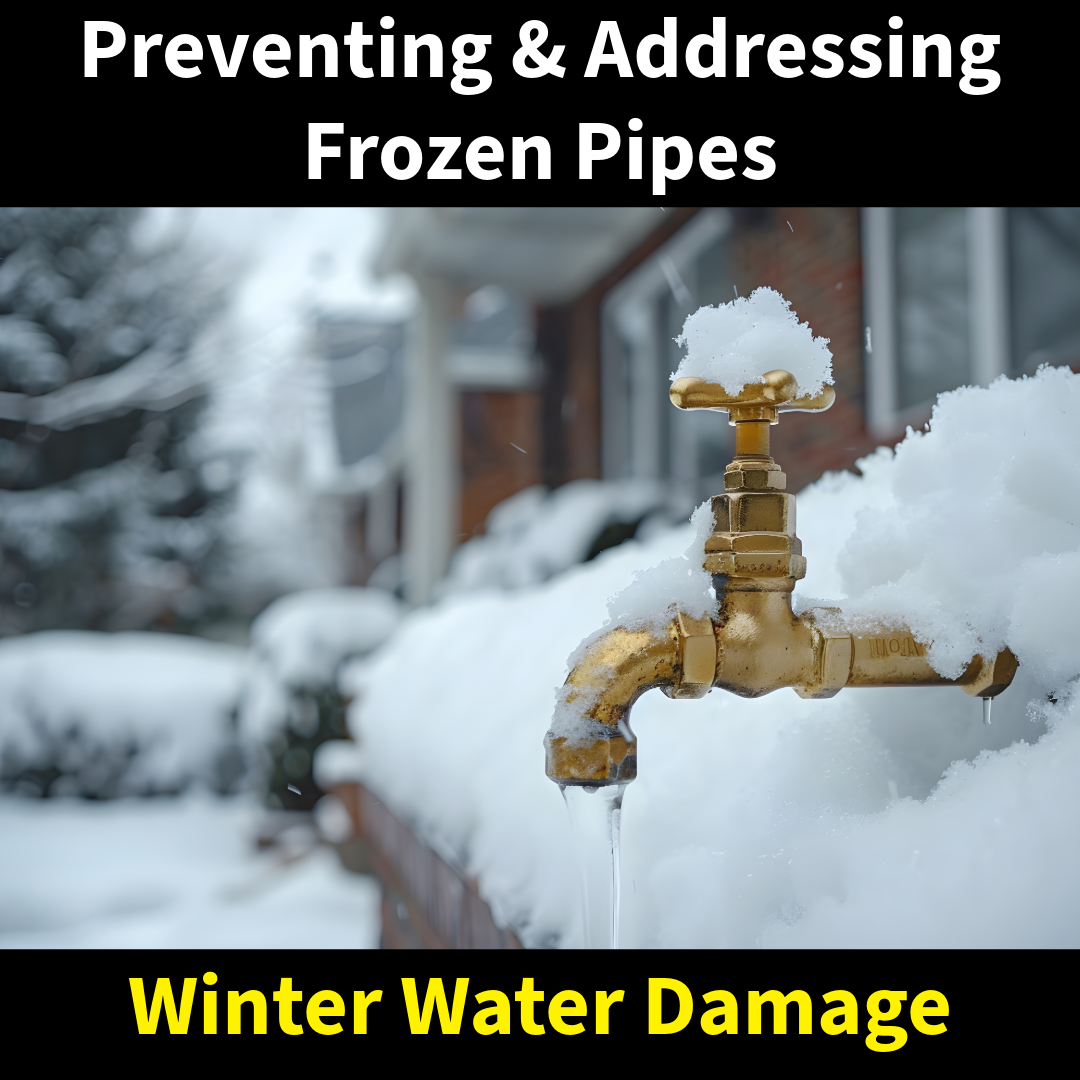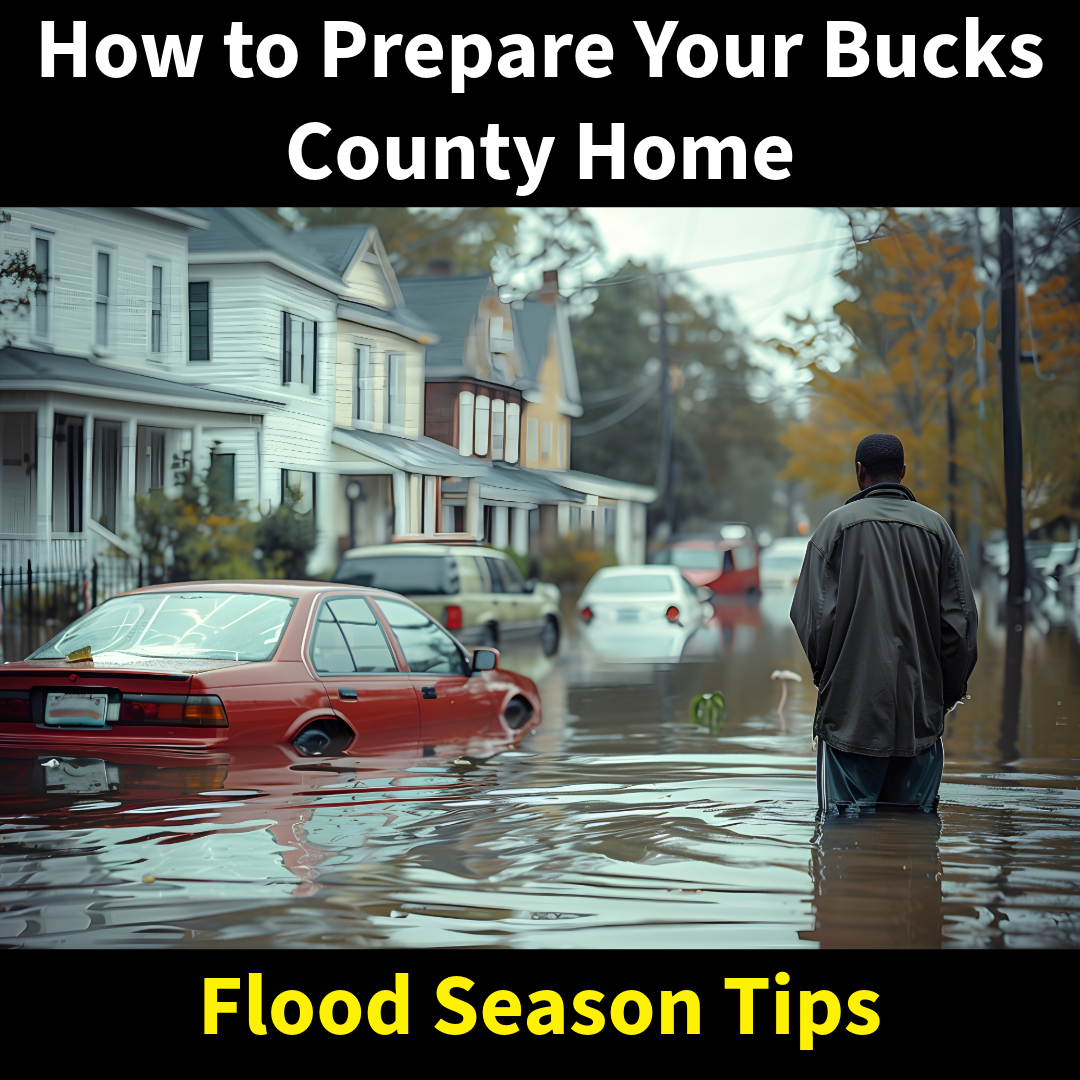Flooding is a common concern for homeowners in Bucks County, PA, especially during heavy rainstorms or snowmelt. Preparing your home before flood season not only protects your property but also ensures the safety of your family. Here’s a step-by-step guide to getting your home ready for potential flooding.
1. Understand Your Flood Risk
Knowing the likelihood of flooding in your area helps you take the right precautions.
What to Do:
- Check FEMA’s Flood Map Service Center to determine your property’s flood zone.
- Consider past local flood history and proximity to rivers like the Delaware River or Neshaminy Creek.
Pro Tip: If you’re in a high-risk zone, flood insurance is a must-have to protect your home and finances.
2. Inspect and Maintain Gutters and Drains
Clogged gutters and drains can lead to water pooling around your home, increasing flood risk.
What to Do:
- Clean gutters and downspouts to ensure proper water flow.
- Extend downspouts at least 6 feet away from your foundation.
- Clear storm drains near your property of debris like leaves or trash.
3. Protect Your Home’s Foundation
Water pooling around your home’s foundation can lead to flooding and structural damage.
Steps to Take:
- Apply waterproof sealants to your basement walls and foundation.
- Ensure proper grading around your home to direct water away.
- Install a French drain system if your yard tends to hold water.
4. Install a Sump Pump with a Backup
A sump pump is your best defense against basement flooding.
What to Do:
- Test your sump pump regularly to ensure it’s working.
- Invest in a battery backup system to keep the pump running during power outages.
5. Elevate Electrical and Valuable Items
Floodwaters can cause severe damage to electrical systems and personal belongings.
What to Do:
- Elevate electrical outlets, switches, and appliances above potential flood levels.
- Store valuables, important documents, and sentimental items in waterproof containers or on upper floors.
6. Seal Doors and Windows
Even minor cracks or gaps can let water seep into your home during a flood.
Steps to Take:
- Use weather stripping or sealant around doors and windows.
- Install flood barriers or sandbags to block water from entering.
7. Create an Emergency Flood Kit
Being prepared can make all the difference during a flood.
What to Include:
- Flashlights, batteries, and a portable phone charger.
- Bottled water and non-perishable food for at least three days.
- First aid supplies and medications.
- Important documents in a waterproof case.
Pro Tip: Have a plan for evacuation and make sure all family members know it.
8. Check Your Home Insurance Coverage
Standard homeowners insurance doesn’t typically cover flood damage, so additional protection may be necessary.
What to Do:
- Review your policy to ensure you’re adequately covered.
- Consider purchasing a flood insurance policy through the National Flood Insurance Program (NFIP).
9. Invest in Smart Flood Monitoring Devices
Technology can help you stay ahead of potential water issues.
Devices to Consider:
- Water leak detectors that send alerts to your phone.
- Smart sump pumps with remote monitoring.
- Flood sensors for your basement or other high-risk areas.
10. Partner with a Trusted Restoration Company
In the unfortunate event of flooding, having a reliable restoration partner ensures your home is restored quickly and effectively.
Why Choose Us:
- Rapid response to minimize damage.
- Expertise in water extraction, drying, and mold prevention.
- Support with insurance claims to make the process smoother.
Conclusion
Flood season doesn’t have to spell disaster for your Bucks County, PA home. By taking proactive steps, you can minimize the risk and protect what matters most.
If you experience flooding, Mold Solutions & Inspections is here to help with expert water damage restoration services since 1998. Contact us today to prepare for the unexpected and ensure your home stays safe year-round.


